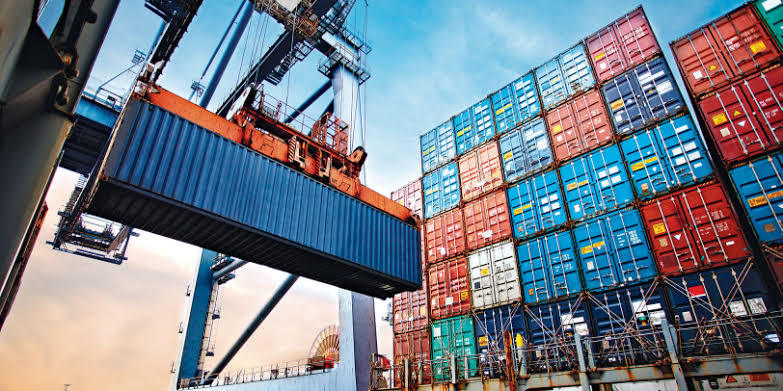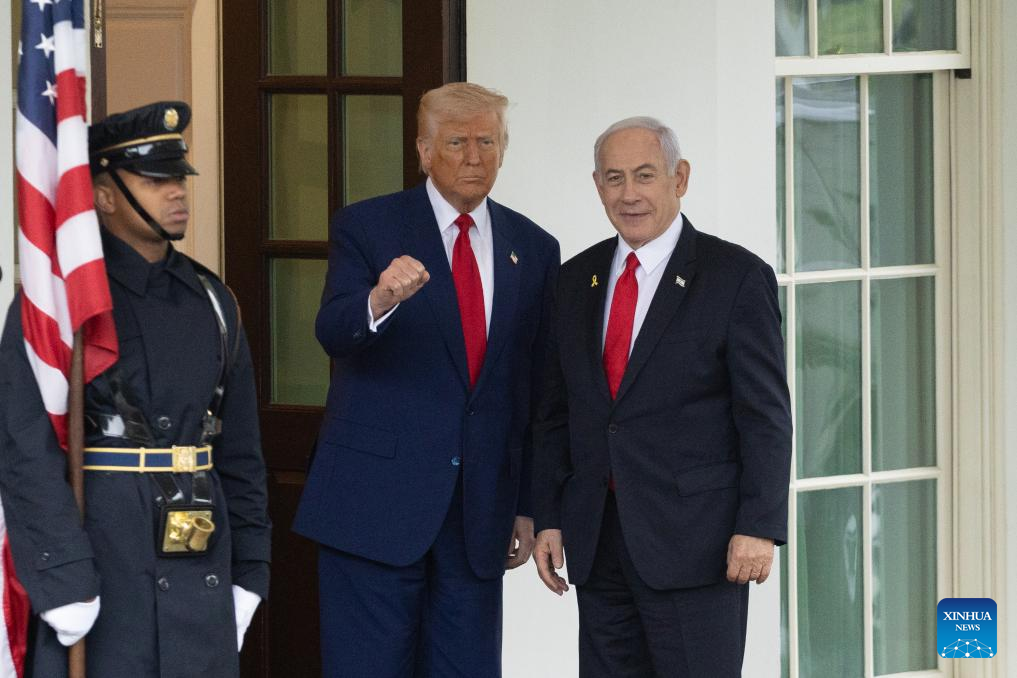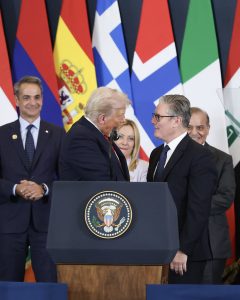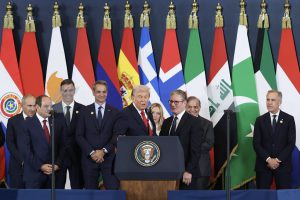China is among the hardest-hit, facing a 34 per cent levy—part of what Washington describes as reciprocal measures aimed at rebalancing trade deficits and curbing unfair trade practices
China has strongly condemned the United States’ sweeping tariff hikes on global imports, calling it a violation of international trade norms and a threat to the multilateral system. The backlash follows President Donald Trump’s decision to impose steep tariffs under a “national economic emergency,” a move that has drawn global criticism while potentially opening new trade avenues for India.
The United States has announced tariff increases of at least 10 per cent on imports from more than 180 countries and regions. China is among the hardest-hit, facing a 34 per cent levy—part of what Washington describes as reciprocal measures aimed at rebalancing trade deficits and curbing unfair trade practices.
In a pointed response, China’s Foreign Ministry spokesperson Guo Jiakun said on Thursday, “The US announced tariff hikes on imports from many countries, including China, under the pretext of reciprocity. This gravely violates WTO rules and undermines the rules-based multilateral trading system. China firmly rejects this and will do what is necessary to defend our legitimate rights and interests.”
Guo also stressed that the US’s unilateral moves are counterproductive and potentially damaging to the global economy. “Trade and tariff wars have no winners. Protectionism leads nowhere. We urge the US to stop doing the wrong thing and resolve trade differences with China and other countries through consultation with equality, respect, and mutual benefit,” he added.
China’s Commerce Ministry echoed the sentiment, warning of “resolute counter-measures” and calling on the US to remove the unilateral tariffs immediately. The Chinese state-run Global Times quoted ministry officials as saying that China remains committed to resolving disputes through dialogue but will not hesitate to protect its economic interests.
India gets a definitive edge over China
While the tariff hikes have triggered alarm in many global capitals, India appears to have found a silver lining. Among the list of affected nations, India’s tariff rate of 27 per cent is significantly lower than that imposed on China (34 per cent), Cambodia (49 per cent), Vietnam (46 per cent), Japan (24 per cent), and the European Union (20 per cent), giving Indian exporters a potential edge in several key sectors.
According to trade experts, India stands to gain competitiveness in sectors such as electronics, engineering goods, textiles, gems and jewellery, and automobiles. The real opportunity, they say, lies in filling the vacuum left by heavily impacted regional exporters like China and Vietnam.
“The tariffs could shift competitiveness in India’s favour in sectors where other regional exporters are more severely impacted,” said Agneshwar Sen, Trade Policy Leader at EY India. “To maximise this advantage, India must not only negotiate with the US to maintain market access but also collaborate with Free Trade Agreement (FTA) partners in Asia to restructure supply chains and seize new opportunities.”
India’s electronics exports to the US touched $10 billion in the 2023–24 financial year. The India Cellular and Electronics Association (ICEA) estimates this figure could rise to $80 billion annually over the next few years, provided that the government maintains a conducive policy environment and that a stable tariff framework is put in place. With bilateral trade between the two countries already crossing $100 billion, India is in a strong position to capitalise on shifting global trade patterns.
“The real long-term inflection point for India’s electronics trade with the US lies in a swift and successful conclusion of a comprehensive Bilateral Trade Agreement (BTA),” said Pankaj Mohindroo, Chairman of ICEA. “The US needs reliable trade partners in Asia, and India can fill that role if we act quickly.”
Another high-potential sector is electric vehicles (EVs). The US has imposed heavy tariffs on Chinese auto exports, a category in which China shipped $17.99 billion worth of vehicles and components to the US in 2023. In contrast, India exported only $2.1 billion in auto-related goods to the US last year, highlighting the scope for rapid growth.
“India’s EV sector, particularly in the budget car segment, has an excellent opportunity to capture market share from China,” said Saurabh Agarwal, Partner and Automotive Tax Leader at EY India. “To do that, the government should enhance the PLI scheme by including more auto components, welcoming new entrants, and extending the scheme by two more years.”
The ICEA and other industry bodies have also urged the Indian government to ramp up diplomatic engagement with the US and initiate talks for broader trade cooperation. While the global economic environment remains volatile, India’s relatively favourable position amidst the tariff reshuffle is viewed by many as a window of opportunity that may not last forever.
“Policymakers must move fast. We need to position India as a strategic, stable, and scalable manufacturing hub that American companies can count on. That means improving ease of doing business, accelerating infrastructure development, and strengthening regulatory certainty,” said Sen.
As the US tariff decision reverberates through global markets, India’s exporters, trade negotiators, and policymakers are watching closely. The coming weeks could define how effectively New Delhi leverages this geopolitical shift to enhance its export share and deepen economic engagement with the United States.













